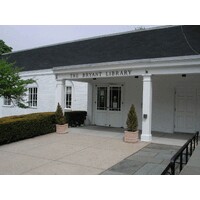
Bryant Library
The Bryant Library is the oldest continuing library in Nassau County. MISSION STATEMENT In keeping with the tradition of the American library, the Bryant Library Board of Trustees affirms that an informed community values its intellectual freedoms and respects and tolerates diverse ideas and opinions. The mission of the Bryant Library shall be to provide our community with access to ideas and to promote lifelong reading for pleasure and for knowledge by providing classic and popular literature in a variety of formats. The library is committed to providing materials and services sufficient to meet the personal, educational, and professional needs of community residents of all ages. The Board of Trustees further recognizes the community's desire to maintain the special character of the Bryant Library. At the same time we seek to provide a setting suitable for the efficient use of the materials and services offered.






